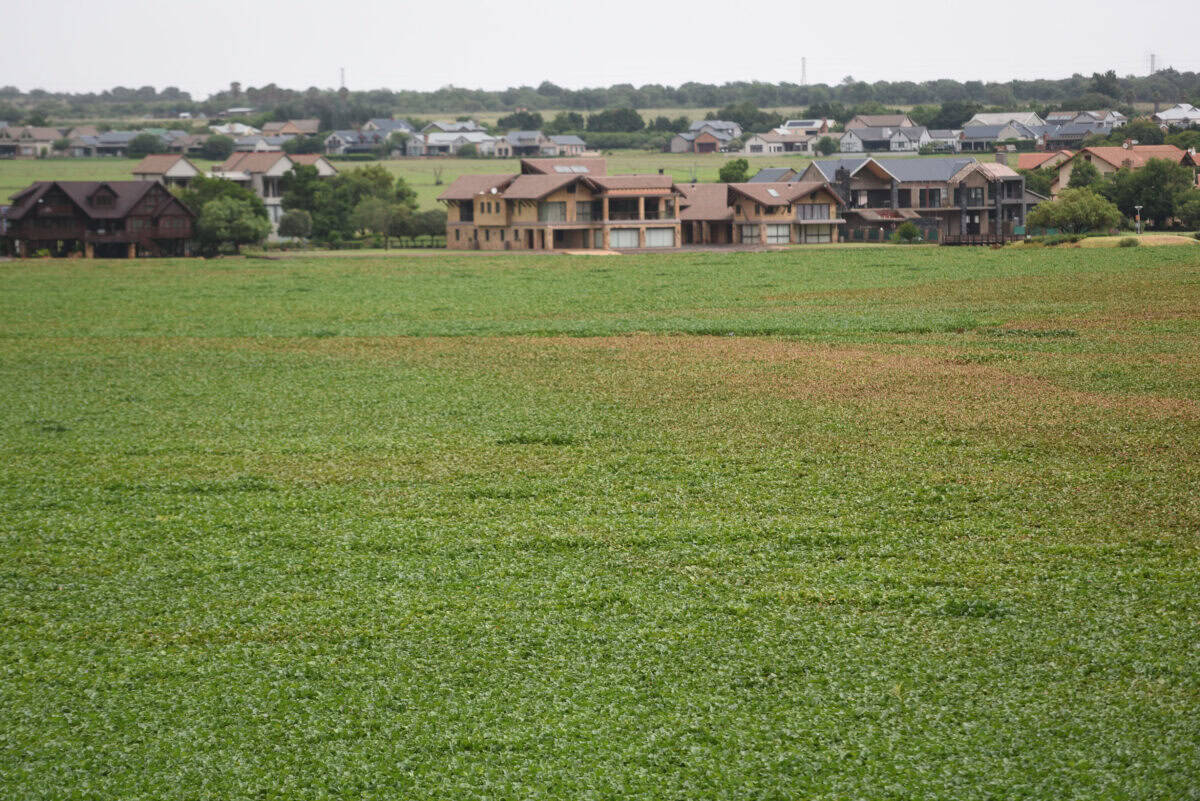A SAHRC probe finds black applicants sidelined for years as white occupants kept prime Hartbeespoort Dam land, violating equality and dignity rights.

The South African Human Rights Commission (SAHRC) has made damning provisional findings confirming systemic racial discrimination and administrative failures in the allocation of state-owned land along the North West’s Hartbeespoort Dam shoreline.
The report found that black applicants were consistently side-lined for more than a decade while white occupants retained and, in some cases expanded, access to prime land.
The investigation was launched following a 2023 complaint by resident Mmeli Mdluli on behalf of the Hartbeespoort Community Development Initiative, following simmering racial tensions.
SAHRC report highlights inequality in Hartbeespoort land leases
He lodged the complaint on 16 August, 2023, alleging that the department of water and sanitation was unfairly discriminating against black people who applied to lease state land along the dam shoreline.
In October last year, Deputy Minister of Water and Sanitation David Mahlobo visited the area to intervene, following violent clashes between white and black business people along the dam.
In September last year, Thabiso Mathibedi’s Bubbles Champagne Garden Restaurant was burnt to the ground after he was allegedly threatened on social media.
ALSO READ: Body of 36-year-old man recovered from Hartbeespoort Dam. What we know so far
The provisional investigative report, dated 27 August, reveal the department of water and sanitation received 120 lease applications since 2012 – 78 of them from black applicants.
Yet, only a single lease was granted to a black male, compared to two for white males and one to a mixed-race entity.
The report found this disparity inconsistent with constitutional and statutory requirements to redress historical exclusion and advance substantive equality.
Dept violated black applicants’ rights
The department was found to have violated black applicants’ rights to equality, dignity and just administrative action.
“Through its historic and ongoing failure to redress racial disparities in the allocation of leases, the department violated black applicants’ right to equality and perpetuated indirect racial and gender unfair discrimination,” the report states.
Instead of prioritising transformation, the department was found to have favoured existing, predominantly white occupants under the justification of preserving jobs, an argument the commission dismissed as constitutionally unsound and reflective of entrenched privilege.
ALSO READ: 90 families in Madibeng face imminent eviction
The department was also slated for failing to finalise its revised lease policy by the March deadline and for revoking permissions to occupy (PTOs) permits without due process.
The investigation also revealed that transformation efforts were hampered by 16 occupiers currently using state land without valid leases or PTOs, most of whom are white. The commission emphasised the department’s obligation to “utilise all legal avenues to reclaim land where necessary for transformation purposes”.
Women, particularly black women, were found to be disproportionately excluded from economic participation in the dam economy.
Black women disproportionately excluded
The commission noted that their absence from lease allocations mirrors historic gender inequities and violates both constitutional and legislative protections.
“The exclusionary practices of the department and the lack of effective response have impaired the dignity of black and female applicants and residents.
“This violation is compounded by the lack of equal regard for black applicants’ rights and interests,” the report states.
ALSO READ: Two Singapore tourists drown in river rafting accident near Hartbeespoort Dam
The investigation also examined allegations of harassment, racist attacks and sabotage of black-owned establishments.
While claims of arson could not be proved, SAHRC said the incident intensified tensions.
Allegations that the SA Police Service was “weaponised” against black residents were not substantiated. But the commission acknowledged delays in investigations and the perception of bias.
‘Dysfunctional’ Madibeng compounded tensions
The “dysfunctional” Madibeng local municipality was found to have compounded tensions, admitting to a collapsed planning system, failure to enforce bylaws and delays in processing business licences.
Its inaction, the commission found, violated residents’ rights to just administrative action and fuelled ill-discipline and irregular development.
The report proposes that the department finalise its revised lease policy within 90 days, establish transformation targets and review all terminated PTOs.
ALSO READ: Police appeal for info to locate missing toddler Peter Chungwane
The commission also recommended a full audit of current land occupiers, with unlawful occupation addressed through legal action.
Other recommendations are that the municipality clear all planning and licence backlogs and finalise outstanding bylaws.
SAHRC warned that failure to comply could lead to legal action.






